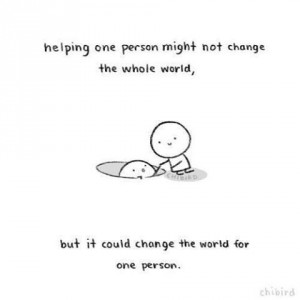People who are involved in solving different social issues in their communities, who are being engaged in helping professions rely on their compassion, empathy and ability to put themselves in someone else’s shoes. This is a remarkable personality trait, but often we forget to be self-aware when being emphatic.
Empathy
Empathy is the ability to understand or feel another person’s condition from their perspective, the capacity to place oneself in another’s position.
Daniel Goleman talks about 3 types of empathy, which teachers, activists, leaders, parents should have:
Cognitive empathy represents our ability to put ourselves in someone else’s place and see their perspective, without necessarily engaging with their emotions, so it’s more a rational process. Emotional empathy is when you can quite literally feel the other person’s emotions as if you had “caught” the emotions. Compassionate empathy is when we not only understand and feel other person’s situation and emotions but spontaneously we are ready to help if needed.
Cognitive empathy is sometimes considered to be too rational and emotional empathy over-emotional, so the compassionate empathy makes balance between the two of them, but it is important to have a nurture all three types of empathy.
Importance of self-awareness
Highly emphatic people often lose the balance between their own emotions and someone else’s, because it may be difficult for them to distance themselves from others. Often in order to help others and “save the world” we put ourselves second place maybe at the expense of our own well-being and mental health.It is known that those who regularly prioritize the feelings of others above their own needs often experience anxiety or depression.It is normal that sometimes we put someone else’s feelings above ours but this should not be the case all the time.

Emotional intelligence requires being emphatic with yourself, so even though you are used to give support and encouragement to others from your surrounding you must remember that you as well like everyone else need support. You may ask yourself from time to time are you getting too caught up in other people’s feelings, moods and problems. If you notice this, you can always make a step back when listening to someone else’s problems and ask yourself in that moment: “How am I feeling right now?” “What do I need in this moment?”.
Being mindful, practicing self-awareness by taking the time just for yourself, caring for your emotions and well-being and intentionally making time for the things you like doing (sport, spending time in nature, meditation) you are being gentle and kind towards yourself. In this case, you will start to notice what you really need, and therefore you can make a decision about how much to give to others and how much to request for yourself.


